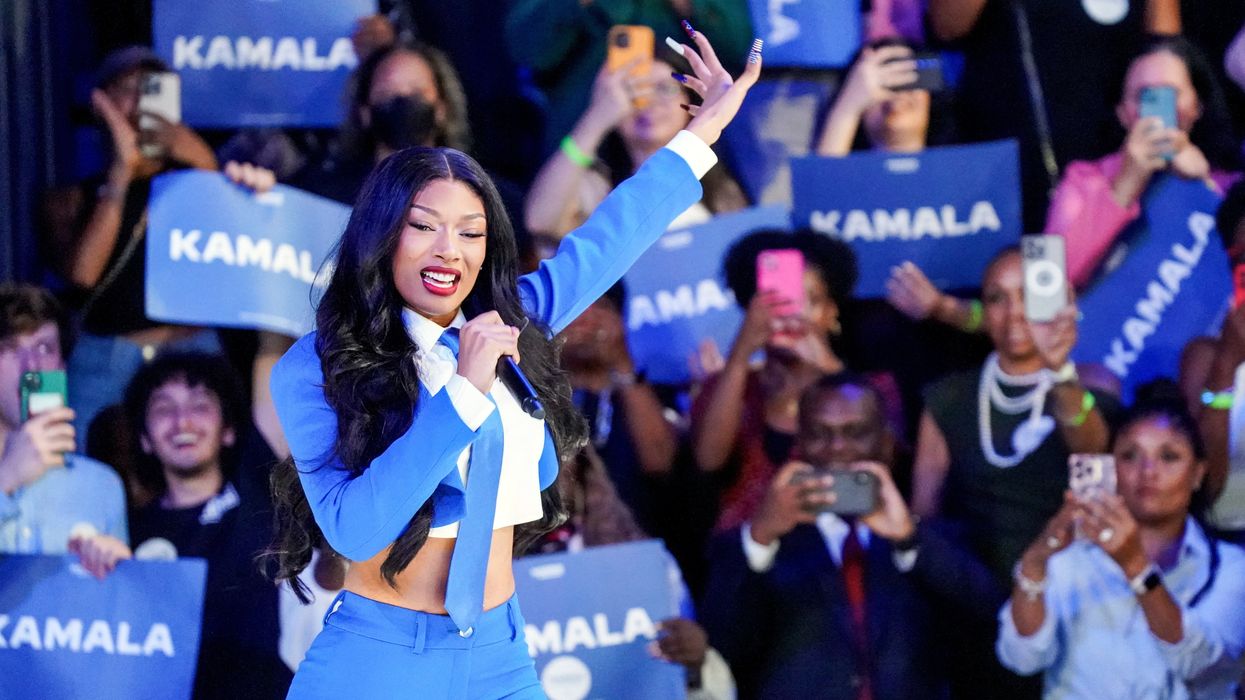Longoria is an associate professor of political science at the University of Texas Rio Grande Valley.
British pop star Charli XCX sent many young people’s group text chats and social media feeds wild when she endorsed Kamala Harris by playing off a term she coined in a song, and posted on X, that “ kamala IS brat.”
While this endorsement, which happened in July 2024, likely means very little to most adults who don’t follow the singer’s music, it is considered high praise among young people. Harris’ campaign astutely embraced Charli XCX’s support – temporarily changing the background of its X profile to the same shade of lime green that Charlie XCX favors.
Celebrities, including singer John Legend and actors Octavia Spencer, Julia Louis-Dreyfus and Jesse Tyler Ferguson, are all making appearances at the Democratic National Convention, which runs Aug. 19-24.
Several celebrities, including wrestler Hulk Hogan and singer Jason Aldean, appeared at the Republican National Convention in July.
So far, a range of other celebrities, including actor Jeff Bridges, the singer Cher, movie director Spike Lee and comedian Amy Schumer, among others, have endorsed Harris.
Meanwhile, comedian Roseanne Barr, as well as singer Kid Rock, model Amber Rose and actor Jon Voight have endorsed Trump.
Some researchers have estimated that Oprah Winfrey’s endorsement of Barack Obama in 2008 gave him an additional 1 million votes.
But overall, research shows that celebrity political endorsements don’t matter enough to determine an election’s results.
If celebrity endorsements don’t shift an election, then why do political campaigns seek them out?
The answer is that they still do matter and for many different reasons. Celebrities can easily get media attention, act as campaign surrogates, expand the voter base and make campaign contributions. All these things can help a candidate win.
What guides voters and celeb endorsements
Not many people will admit that they voted for a candidate because Oprah Winfrey or another celebrity told them to – so survey research will rarely find that celebrity endorsements are meaningful.
About 89% of adults also said in February 2020 that they wouldn’t switch their vote because of a celebrity endorsement.
However, this leaves 11% of American adults who said that they might change their preferred candidate based on what a celebrity said. Another 19% of younger voters also said in this same poll that a celebrity could help change their vote.
In a close election, these voters at the margins could change a candidate’s fortunes.
Celebrities can help keep a politician in the news cycle – and a celebrity endorsement gives candidates an extra opportunity to distribute their message to a public audience.
Whether it is Jeff Bridges – who played “The Dude” in the 1998 movie “The Big Lebowski” – speaking at a “White dudes for Harris” Zoom meeting, or the pro-Trump singer Kid Rock hosting a series of “Rock the Country” concerts, celebrity endorsements can also help candidates target specific demographic groups.
Celebrities also benefit when they get involved in politics because they, too, depend on staying relevant.
By weighing in on political issues, celebrities can keep themselves in the limelight and promote their personal brand. There is a risk, however, that a celebrity might alienate fans and business partners who don’t share their political views.
A strong online presence
Celebrities can also get a lot of media attention when they disagree with a politician or are offended by what they say.
For example, Trump’s running mate, JD Vance, has said that “ the entire future of the Democrats is controlled by people without children.”
His 2021 comments about the country being run by “childless cat ladies” also resurfaced in July 2024.
Actress Jennifer Aniston and talk-show host Whoopi Goldberg went on the counteroffensive, stating that there are many reasons some women don’t have children, including fertility challenges.
“I truly can’t believe that this is coming from a potential VP of the United States,” Aniston wrote on Instagram.
“All I can say is … Mr. Vance, I pray that your daughter is fortunate enough to bear children of her own one day.”
Expanding the electorate base
Celebrities can also effectively encourage people to register to vote or to actually vote. In September 2023, singer Taylor Swift encouraged her fans to register to vote with a link to vote.org.
The site saw a 1,226% increase in traffic, and over 35,000 new voters registered within an hour of her post.
There is speculation this election that Swift will formally back Harris, as she did President Joe Biden during the 2020 election. Some Swift fans have looked for clues of a possible endorsement, including that a Swift dancer – who wore a pantsuit during a recent concert – appeared to resemble Harris.
Trump falsely claimed on Aug. 18 that Swift endorsed him, posting an AI-generated image on Truth Social that showed an image of Swift and said, “Taylor wants you to vote for Donald Trump.”
While Swift has not issued any endorsement one way or another, Swift’s fans have organized a “Swifties4Kamala” movement that has more than 180,000 followers across social media.
Celebrities still have political influence
Celebrity political endorsements are unlikely to change a voter’s core values or sway voters who are already closely following politics and are familiar with the different candidates and what they stand for.
But celebrities still have cultural influence and could encourage people who are not closely engaged in politics or an election to vote for or support a candidate in other ways, such as with donations.
And research also shows that celebrities are especially likely to shape the political opinions of younger voters.
Even if a celebrity endorsement is not the primary reason any voter would select a particular candidate, the celebrity endorsement might have value for some people. And in a close election, it can be just a few thousand votes that matter.![]()
This article is republished from The Conversation under a Creative Commons license. Read the original article.



















Trump & Hegseth gave Mark Kelly a huge 2028 gift